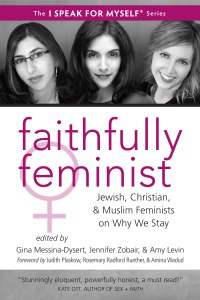 It seems like every few weeks another young, female celebrity proudly and publicly declares she is not a feminist: Shailene Woodley. Katy Perry. Kelly Clarkson. Kendall Jenner. These women often justify their refusal to claim feminism by explaining they do not hate men—speaking to the most intractable and yawn-worthy of the mischaracterizations of feminism—or by insisting they do not personally face inequality.
It seems like every few weeks another young, female celebrity proudly and publicly declares she is not a feminist: Shailene Woodley. Katy Perry. Kelly Clarkson. Kendall Jenner. These women often justify their refusal to claim feminism by explaining they do not hate men—speaking to the most intractable and yawn-worthy of the mischaracterizations of feminism—or by insisting they do not personally face inequality.
Nevermind that compelling movie roles for women dry up decades before those for men, or that recently 37-year-old Maggie Gyllenhaal was deemed “too old” to play the love interest of a 55-year-old man. (Thank you, Amy Schumer, for the Last F**kable Day Skit!). Even if we accept these young stars’ claims that they don’t face any discrimination, feminists wonder where the concern is for other, less privileged women.
This question is both frustrating and justifiable. On the one hand, who cares what a reality television star thinks of feminism? On the other, these women tremendous power to influence young women. For them to dismissively say, “I have rights, so who needs feminism,” both dishonors the sacrifices of our foremothers and ignores the reality that women’s rights are still in play.
They are still in play for women seeking equal pay for equal work, for those who want paid maternity leave, and for those who seek access to reproductive health. They are still in play for women of color and for LGBT women.
And they are still in play for women of faith.
Gender continues to be a serious issue in patriarchal religious traditions, and women continue to be denied particular roles because of their genitalia and/or gender expression. However, while mainstream feminists practically beg young celebrities to adopt the “feminist” label, women of faith are mocked for actually claiming a feminist identity and working within our traditions to combat sexism. While mainstream feminism seems desperate to have in its fold a 19-year-old reality television star who is famous in no small part because her older sister’s sex tape went viral, mainstream feminism rejects empowered women of faith.
So why have we become second-class feminists?
We understand the appearance of a disconnect between our faith and our feminism. We acknowledge that our religious traditions suffer from sexist interpretations. We understand why some feminists leave our faiths, and we have been tempted to do the same. But even if every Jewish, Christian and Muslim feminist abandoned her tradition, there would still be many women who stay, women for whom that decision has religious jurisprudential consequences. They will still be subject to Halakhah, Canon law and fatwas. They will still face exclusion from leadership roles. They will still endure pressure from community members who accept women’s lesser status based on the teachings of unenlightened rabbis, priests, and imams.
We acknowledge and concern ourselves with these real world impacts of our faiths. But we also recognize our faiths’ foundational messages for what they are and the ways they’ve been misconstrued. In other words, we refuse to let our traditions be defined by sexist interpretations.
This refusal takes many forms. Jewish, Christian, and Muslim feminist scholars are working within the framework of existing translations of the Torah, Bible, and Qur’an, producing new translations of those texts, and, in some cases, questioning the authenticity and divinity of verses that appear irredeemably sexist. At the same time, female activists are committing radical acts of worship that address longstanding sexism. Anat Hoffman was arrested and strip searched for her activism seeking legal recognition for Jewish women to pray out loud with traditionally male religious garb at the Western Wall in Jerusalem. Kate Kelly was excommunicated after founding the movement Ordain Women and calling for women to take on leadership roles within the Mormon Church. Amina Wadud endured international condemnations and threats of violence when she became the first woman to lead a mixed-gender Muslim prayer in the U.S.
These are dedicated, tenacious women who refuse to abdicate their religions to sexist interpretations. This is what courage looks like. This is what feminism looks like.
And yet, while mainstream feminists pine for young stars to pay lip service to feminism, women of faith who are actually doing brave and difficult work are routinely told they cannot be “true” feminists.
We recognize that many people think it is only a feminist act to leave patriarchal traditions. We contend that it can also be a feminist act to stay, and we look forward to the day when doing so puts neither our faith nor our feminism in question.
___
 This piece was co-authored by Jennifer Zobair, Gina-Messina-Dysert, and Amy Levin, the co-editors of Faithfully Feminist: Jewish, Christian, and Muslim Feminists on Why We Stay.
This piece was co-authored by Jennifer Zobair, Gina-Messina-Dysert, and Amy Levin, the co-editors of Faithfully Feminist: Jewish, Christian, and Muslim Feminists on Why We Stay.


I don’t live in the States now, but my experience is that you are talking about “some” feminists — esp Marxist/materialist feminists who also deny the value of all spirituality or religion — including women’s spirituality and ecofeminist spirituality even when not attached to traditional established “patriarchal” religions.
At the same time, Ms Magazine, for example has celebrated feminists who challenge traditional religions many times (including articles on feminist seders, Episcopal and RC women priests), but has not written much about feminist spirituality not attached to traditional religions.
This is not to deny that Marxist feminists have succeeded in their attacks in some parts of the feminist movement. Indeed “ecofeminism” and ‘Goddess feminism’ have been identified with “essentialism” and “essentially” dismissed to the extent that discussions of whether these all members of these movements are “essentialist” or even about what the charge means are not welcomed.
LikeLike
Ironically, Marxism too is an invention of males and Marxist-Leninist regimes were just as male-centric and misogynistic.
LikeLike
Reblogged this on Helping the Crippled 2 God Community Organization and commented:
Chicago Men in the Chicago Black Gospel Belt have a feminist belief system about religious Black women for one reason…
LikeLike
Every human being is unique. Every woman is unique. There is no such thing as second class feminists, or any categories we can put anybody into. So we don’t need to label ourselves or label others. Beside that we are always growing and changing, and if we are awake and aware, we are always understanding things from new perspectives.
LikeLike
This is amazing and so, so true. Thank you for all you do.
LikeLike
If the past year has taught us anything it is that we must all stand together. Thank you for this post – there can be no second-class feminists because every single one of us must be valued for her unique talents and life experience if we are to succeed in making our world safe, peaceful and just for everyone.
LikeLike
Well said Carolyn. I agree that more than ever we have to overcome what would separate us. I know that very often some women and men will criticize those who stay with dysfunctional systems and try to change them from within. I believe that those who leave in protest, and those who stay to work to reform, are both needed, all valued, and following their own sense of justice.
LikeLike
Sometimes women are their own worst enemies.Women who are expressing themselves as feminists through any religious tradition need to be taken seriously, regardless of whether or not we personally agree with the tradition in question. As a woman who has created/celebrated Earth Based Spirituality for more than 30 years I am still considered suspect or simply dismissed as some new age something…As women and as feminists what we need to do is to provide support for one another. I wonder how we could change the narrative if we stood together celebrating our differences?
To hear women say proudly that they are not feminists is to further separate and divide women from women. Of course it is no longer politically correct to name oneself as a feminist but to suggest that to be a feminist is to hate men is simply ludicrous.
LikeLike
The way forward for you is clearly Jesus. He told people to look for God inside of themselves. He did not tell them to look for it in old religious books written by judgemental people. He meditated in order to connect with God, just like Tomas, and with great results. Personally my meditation tells me to use the word “gender equality” and not “feminism”. Do feel free to meditate on it yourselves! :)
LikeLike
I will be a part of the group of people that will be thanked by future generations for their freedom 💪. This post is great. Check out my feminist blog?! X
LikeLike